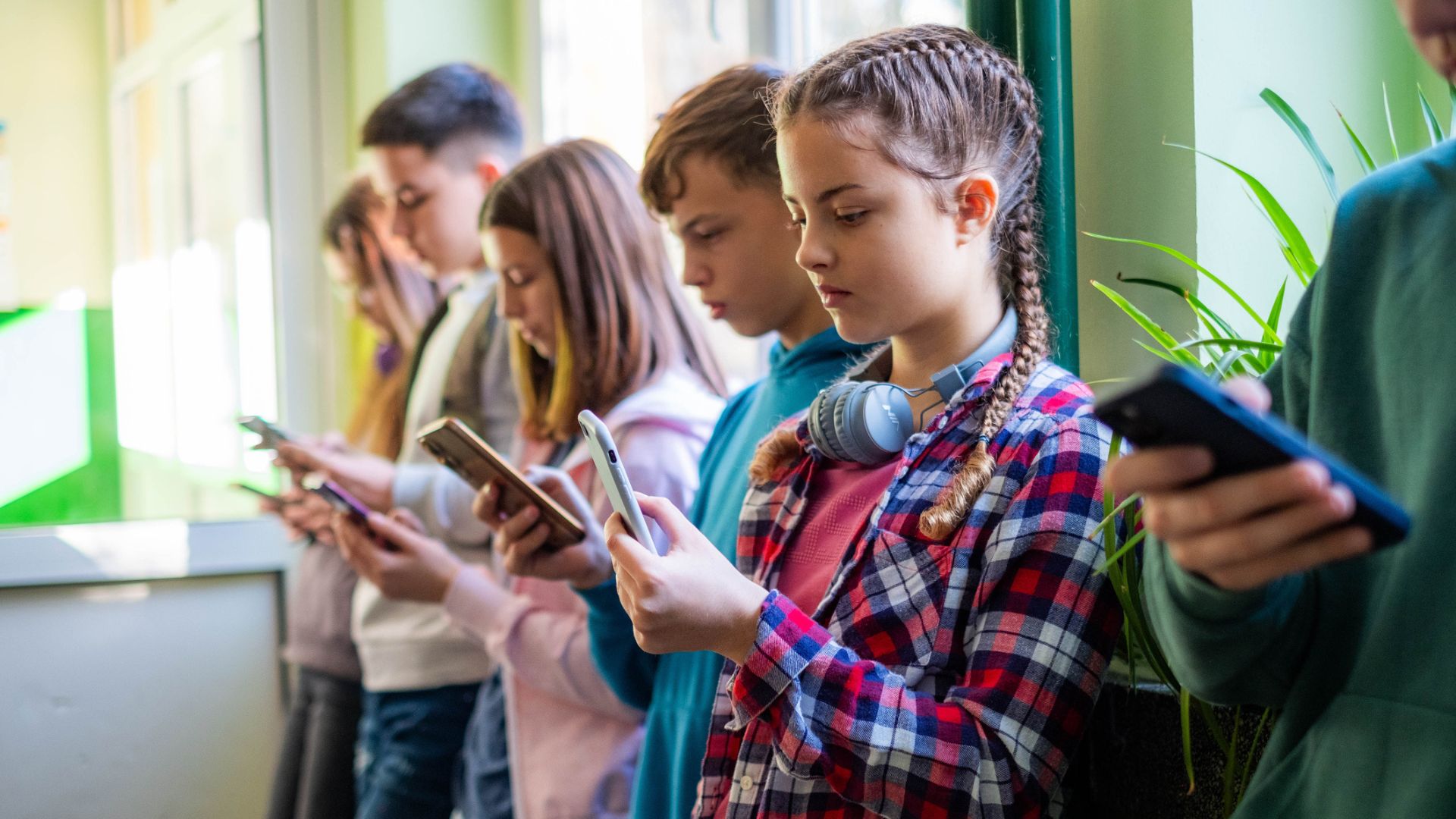“Young people need clear rules to thrive” - 4 mums discuss how they’ve reduced or banned their children’s smartphone access
The debate over teenagers having smartphones intensified thanks to hit TV series Adolescence, about a teenage boy driven to violence by cruel social media posts. We spoke to four mums who have banned or set clear rules around their children’s phones.


Most schools have stringent rules on phones – commonly that they can’t be ‘out’ at school – due to the host of problems they cause in classrooms. UK government guidelines recommend that all schools prohibit the use of phones throughout the school day. In the US, at least 22 states enforce bans or restrictions on students’ use of phones in schools, according to Education Week.
But phones are still being used, with desperate pupils even sneaking off to the bathroom in their break.
A study published in The Lancet’s Regional Health Europe Journal last month found that spending longer on phones and social media is linked to poor sleep, lower grades, disruptive behaviour and insufficient exercise. However, a direct connection between banning phones in schools and improved academic grades and wellbeing remains unproven, according to the study.
Bans don’t impact the overall amount of time children spend on their phones because they make up their lost time when school is out.
Meanwhile, parents and teachers remain unconvinced that a rigid ban in schools is the best thing for children. We spoke to four mums who shared their thoughts on the matter.
Ban phones in schools

Mum of three and former teacher Emma Bradley, 49, from Gloucestershire, has taught wellbeing in schools and firmly believes phones need to be banned.
She tells us, “Aside from being a big distraction from their education, phones aren’t helping children to be robust.
Sign up to our free daily email for the latest royal and entertainment news, interesting opinion, expert advice on styling and beauty trends, and no-nonsense guides to the health and wellness questions you want answered.
“My 10-year-old texts me to say she’s having a bad day, wanting reassurance instead of building resilience to problems. Pre-phones, kids just got on with their day.”
Emma says bans aren’t being adhered to. “Secretly, kids all use them, in spite of the threat of confiscation – some schools only return the phone when the child’s parent comes to the school.
“Young people need clear rules to thrive, not rules they can easily get around by saying they needed to look something up for English. A firm ban removes room for conflict.”
Indeed, the Smartphone-Free Schools movement say that almost a third of teachers report pupils using phones in lessons, while smartphone-free schools get GCSE results 1-2 grades higher.
Tom Rees, Chief Executive of Ormiston Academies Trust, which has joined the campaign to ban smartphones in schools gets right to the heart of the matter, says, “Learning, behaviour and wellbeing are our top priorities……smartphones are detrimental to all of that.”
Ditch the phones completely

The parents’ lobby group Smartphone Free Childhood, set up in February 2024 to bring parents together 'to stand up for healthier, happier childhoods’ claims that 80,000 children have signed their pact to delay mobile ownership to age 14.
Young people have recently spoken out about the upside of being phone-free, with many saying how liberating it was to ditch a phone to pursue other, more satisfying activities such as being outside, playing chess or sports.
Joe Swiffen, 48, lives in an isolated, rural village in North Wales with her husband and 9-year-old son, Phoenix, who doesn’t have a phone. Only one girl in his class has one, and his mum doesn’t fear that he is losing out.
She says, “He has access to iPads at school, but he won’t be getting a phone any time soon. When we go out as a family, to eat, for example, we see lots of kids with phones, but we take games instead, or a pad for drawing. Phoenix might take Lego as well. We talk to each other and we have developed a good relationship with our son.
“Very occasionally, he will ask when he can have a phone, but it’s not a big deal - he has access to my phone. He takes himself off outside to play, and his imagination is off the scale.
“We keep his screen time to a maximum of 1.5 hours a day, but it’s not an issue – he genuinely wants to do other things besides stare at a screen.
“We run a dog sledding business, and he loves playing with the dogs. He’s not on social media, and he’s only allowed kids’ YouTube.
“I don’t know how we will cope when he’s a teenager, particularly if more of his classmates have phones, but right now our son is thriving without one. Phones do nothing for the wellbeing of young people.”
Grey areas

Ceri Anne Diffley, 53, a grammar school teacher in Thanet, Kent, recognises that although a ban would be preferable, it is complicated. Ceri, who has a 19-year-old son, explains, “Ideally, kids would have a burner phone for texting that doesn’t connect to the internet, but kids need access to the internet to look things up.
“They should have phones for safety to and from school, although the dangers of travelling on public transport are vastly exaggerated.
“Collecting a thousand phones every morning and giving them back at the end of the day is impractical. The best solution would be to disable phones from using any internet aside from the school’s system, if that could be done. Schools have giant filters that disable gambling and porn sites and all social media.”
One particularly concerning downside of smartphones is that when kids go on Snapchat, they can track the location of other children who are on it. Ceri observes, “If a child isn’t invited to something all the other kids are at, they feel horribly left out.”
Risks of a ban
Emma continues, “I’d like phones banned during lunch too, so they talk to each other instead of watching Tik ok. Kids need to be participating in life rather than just observing.
“Also, with a ban, there’s no risk of them filming each other and teachers, which is potentially very serious.”
There is a downside to a ban, though, according to one Leeds-based teacher and mum, who wishes to remain anonymous. She said, “Going on their phone at lunch can be comforting for some children who might be overwhelmed by school – phones can be a bit of an escape.
“They can also help kids who feel they don’t fit in – if they are excluded from social groups, they can just go on their phone to relieve their discomfort. Taking kids’ phones can cause a lot of anxiety.”

Lynne has been a national newspaper and magazine journalist for 33 years, writing on topics as diverse as cultic abuse to health, charities, property and travel. She has been involved with campaigning for care homes, workplace equality, the rehabilitation of prisoners and social issues such as homelessness.
Lynne, who qualified as a funeral celebrant in July 2024, is also a jazz singer working in pubs and clubs around London and Kent. She lives in Thanet, Kent.